June 21, 2025 | 03:27 GMT +7
June 21, 2025 | 03:27 GMT +7
Hotline: 0913.378.918
June 21, 2025 | 03:27 GMT +7
Hotline: 0913.378.918
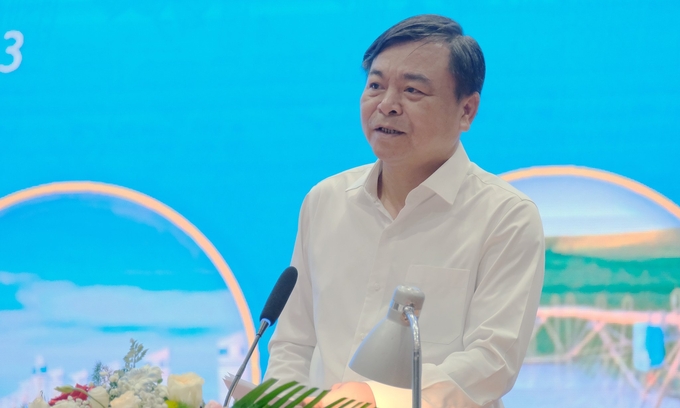
Deputy Minister Nguyen Hoang Hiep sympathized and shared with those working day and night on irrigation projects. Photo: Bao Thang.
Speaking at a conference to remove difficulties for irrigation projects, Deputy Minister of Agriculture and Rural Development Nguyen Hoang Hiep said that companies currently face main challenges. Firstly, there are institutional constraints, including the Irrigation Law, the Price Law, and related Decrees such as 96, 32, 114...
According to the Deputy Minister, the Ministry of Agriculture and Rural Development has just issued a document requesting localities to conduct a summary review of the Irrigation Law to improve capacity, consolidate operations, and promptly meet market requirements. "We want to be able to convert operations from service to service, to stabilize the lives of irrigation staff," he said.
Increasing the proportion of irrigation services in project exploitation also helps companies attract more socialization resources and investment in irrigation infrastructure while reducing the impact of policy changes.
Another limitation is the price determination mechanism. Currently, many irrigation companies are still struggling with this issue. Due to many obstacles, including Decree 96, many companies currently owe salaries to officials and employees.
The second challenge mentioned by Deputy Minister Nguyen Hoang Hiep is the ordering and bidding method for companies. Previously, most of them were assigned "subsidized" tasks. But in the current mechanism, if you want to make a breakthrough from service to service and improve capacity, most of them are stuck in Decree 32.
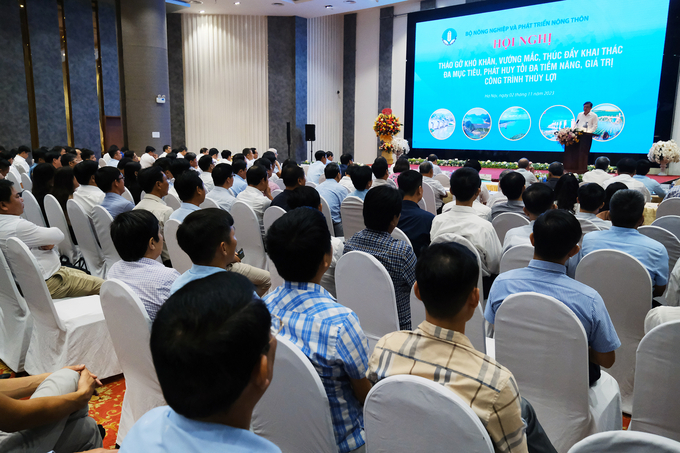
Many proposals and recommendations were made by irrigation companies at the conference on the morning of November 2. Photo: Bao Thang.
The third is about infrastructure. Due to the characteristics of irrigation projects that always require significant maintenance costs, most of the budget is spent on this activity. Upgrading, aiming for optimization, and multi-purpose use cannot be solved in a day or two.
The fourth bottleneck is dam safety management. Leaders of the Ministry of Agriculture and Rural Development acknowledged that this is a relatively sensitive issue for people, especially when there is information related to dyke or dam failures, which will have a significant impact on community psychology. To ensure this task, in 2022, Politburo issued Conclusion 36 on ensuring water source security and dam safety. Dam safety has always been challenging for the irrigation industry.
Finally, there are issues related to regimes and policies for employees. Recently, many irrigation staff have resigned due to persistent salary arrears and low income. "We need to put ourselves in the position of those who lie alone all year round in the middle of irrigation works to understand their thoughts," the Deputy Minister emphasized.
Sharing at the conference jointly organized by the Department of Water Resource, the attending delegates raised many views on the survey and assessment of the implementation results of the Irrigation Law and financial regulations in the management and exploitation of irrigation works.
Receiving the direction of Deputy Minister Nguyen Hoang Hiep, the discussion focused on solutions to remove difficulties and obstacles, promote multiple goals, and promote the potential and value of irrigation projects.
Most agree that irrigation systems are essential in agricultural production, improving the ecological environment, preventing and mitigating natural disasters, and ensuring water source security. However, the most significant difficulty in exploiting irrigation works today is that the related regulations are inadequate and impractical.
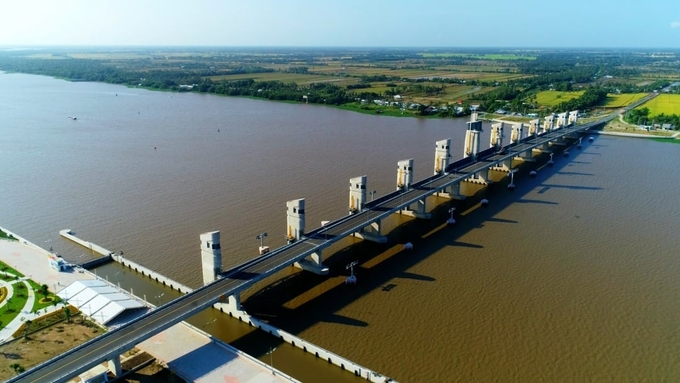
In addition to the task of irrigation, ensuring water for daily use,... many irrigation works have now become tourist attractions, attracting tourists. Photo: Tung Dinh.
Mr. Dao Xuan Hoc, former Deputy Minister of Agriculture and Rural Development and chairman of the Vietnam Water Resource Development Association, said that the financial situation of irrigation exploitation units is difficult because the Central Government mainly regulates spending norms. 2012 to present and no longer relevant.
"The compensation for irrigation fees, as well as the irrigation fee price that was introduced 11 years ago is very outdated. If we only calculate the price slippage of 7%, it takes about 7 years to double the subsidy price and the irrigation fee price. But now after 11 years, the price is still the same," Mr. Hoc expressed...
Clarifying this issue further, Mr. Nguyen Hong Khanh, Deputy Director of the Department of Water Resource, informed that the Ministry of Finance has made several recommendations to deploy orders for irrigation enterprises. However, the actual survey shows that until the current problems are resolved, the ordering mechanism will still face difficulties.
Opinions at the conference all agreed that it is necessary to develop a Draft Decree to replace Decree 96 detailing the prices of irrigation products and services and support for the use of irrigation products and public services. A representative of the Ministry of Finance said that the new draft could be completed in the second quarter of 2024.
Translated by Tuan Huy
![Turning wind and rain into action: [10] Advancing accessible climate services for farmers](https://t.ex-cdn.com/nongnghiepmoitruong.vn/608w/files/linhnhp/2025/06/20/1911-z6704423696987_15fd32ffc26d590d204d520c9dac6786-nongnghiep-161854.jpg)
(VAN) Not only does it help farmers 'avoid droughts and rains,' the development of agricultural climate services also enhances their ability to proactively adapt to a rapidly changing climate.
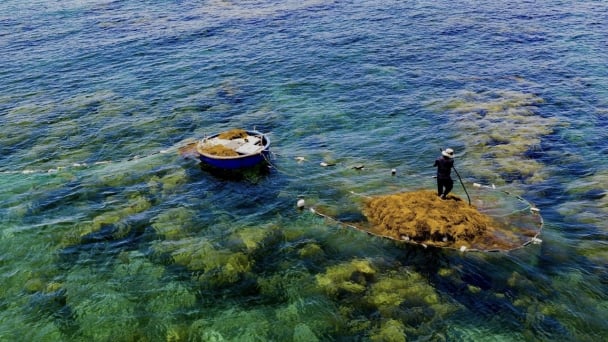
(VAN) With international assistance, the harvesting of sargassum seaweed in Quang Ngai has become increasingly regulated, thereby safeguarding marine life and ensuring the stability of coastal communities' livelihoods.
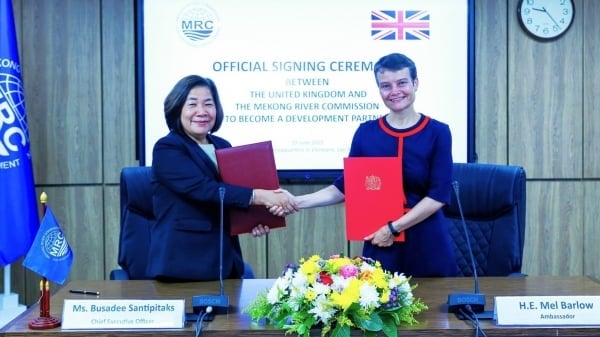
(VAN) On June 19, the United Kingdom officially became a Development Partner of the Mekong River Commission.

(VAN) Biodiversity is being threatened by traditional remedies made from wildlife. Traditional medicine and humans must change to live in harmony with nature.

(VAN) Agrifood investment and finance solutions for people and the planet.

(VAN) Microplastic contamination has become pervasive in seafood, posing unprecedented challenges for food safety and marine ecosystems.
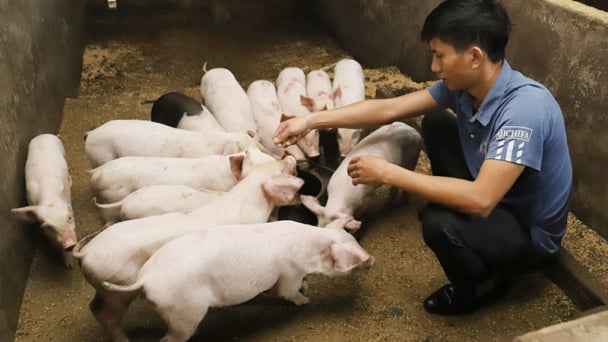
(VAN) Proactively using vaccines, combined with transport control and enhanced surveillance, is the only viable path toward biosecure and sustainable livestock production in Vietnam.